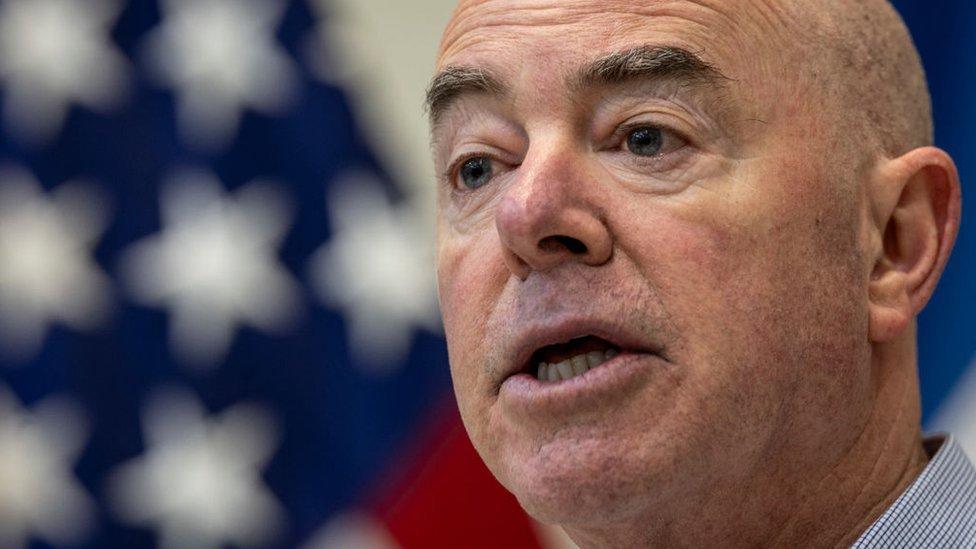Biden vows border 'shut down' if Congress passes deal
- Published

US President Joe Biden has said he backs a bipartisan Senate border deal that gives him powers to shut down the southern border "when it becomes overwhelmed".
"If given that authority, I would use it the day I sign the bill into law," he said in a statement on Friday.
Mr Biden urged lawmakers to pass the deal, calling it the "toughest and fairest" set of reforms seen yet.
The border deal faces objections from right and left.
Former President Donald Trump has also tried to tank the deal, urging Republican House Speaker Mike Johnson to only accept it if it is "perfect on the border".
Pressure has been mounting on Mr Biden to act on the US-Mexico border as he vies for a second-term in the White House. He is likely to face off against Mr Trump - who has taken a hardline stance on immigration - again in the upcoming presidential election.
Immigration is a central issue ahead of the election, with voters in Iowa and New Hampshire delivering primary victories to Mr Trump in part due to their concerns over the border.
In December, migrant encounters at the US-Mexico border averaged more than 9,500 per day, according to US government data.
Adding to the pressure, some Republicans have set a deal on border security as a condition for further Ukraine aid. A border deal is also integral to the approval of further aid for Israel and Taiwan, as Republicans in the House said they will not back more funding for either without it.
Mr Biden's latest comments come as Senate negotiators try to win the approval of some House colleagues who have vowed to strike down the current border deal.
Top Senate Republicans, like Senate minority leader Mitch McConnell, have urged them to pass it.
Watch: A look at the US border as immigration debate heats up
Mr McConnell called it "a unique opportunity to accomplish something in a divided government that wouldn't be there under a unified government".
But Mr Johnson has shown no signs that he and his colleagues will approve the deal. Earlier on Friday, Mr Johnson told reporters that the deal is "dead on arrival" in its current form.
Related topics
- Published26 January 2024

- Published11 January 2024

- Published22 January 2024
